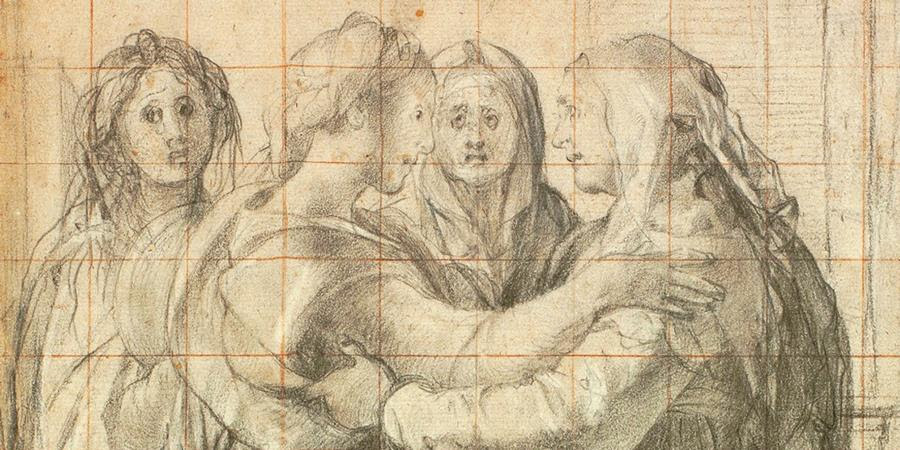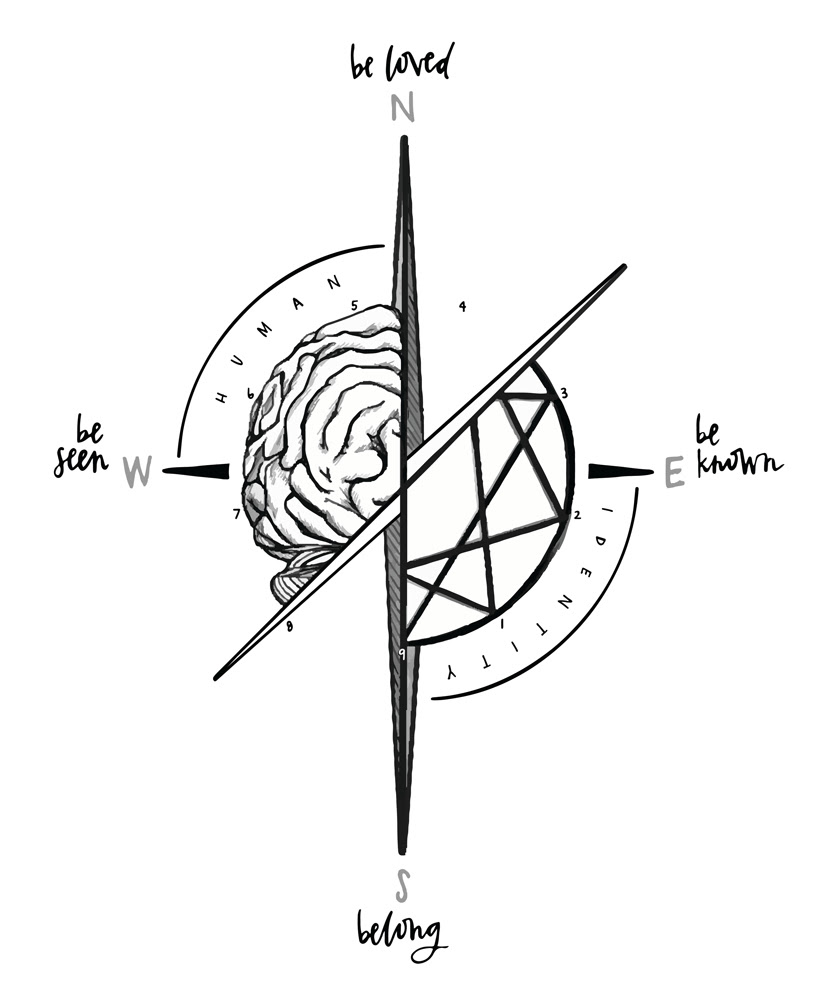From the Center for Action and Contemplation

Summary: Week Nine
Enneagram Part Two:
Heart Center
March 1 - March 6, 2020
Through the lens of the Enneagram we have greater self-knowledge and the ability to let go of what only seems good in order to discover what in us is really good. (Sunday)
Something is clearly working here, and the enneagram of personality movement seems to be manifesting the fruits of conscious inner work in ways that are both personally authentic and statistically significant. —Cynthia Bourgeault (Monday)
Being in touch with the heart tells us the quality of our existence, tells us how we recognize the truth. . . . The heart also is the place where we know who we really are. —Russ Hudson (Tuesday)
Twos are healed and redeemed the more they experience God as the Real Lover and realize that true, selfless love only comes by sharing in God’s love. (Wednesday)
At their healthiest, Threes let go of the belief that their value is dependent on the positive regard of others, thus freeing them to discover their true identity and their own heart’s desire. —Don Richard Riso and Russ Hudson (Thursday)
At this [healthy] stage, Fours no longer need to feel different or special, seeing that, indeed, the universe has created only one of them, and that they are part of everything else—not isolated and alone. —Don Richard Riso and Russ Hudson (Friday)
Practice: The Brain-Based Enneagram
This week’s invitation to contemplative practice is again drawn from Whole-Identity: A Brain-Based Enneagram Model for (W)holistic Human Thriving, by Living School student and neurologist Dr. Jerome Lubbe. It is certainly a different way of understanding the Enneagram than I was taught so many years ago, but while the symbol is ancient and perennial, the wisdom is continually evolving, just like we should be.

“What is your number?” is the most frequently asked question in regard to the Enneagram. But in the Brain-Based model, we learn to see ourselves as all nine numbers simultaneously, and to consider our efficiency in each. For example, instead of “I am a One” you might say, “I have high efficiency in One,” and then perhaps, “my Seven nature is strong as well.” That means if you tested as a One you would not “be” a One but instead would have high efficiency” in the nature of One. When that is the case, you can further inquire, “. . . and what is my relationship to the rest of the numbers/natures?” All around the circle, you witness the efficiency or inefficiency with which you utilize each number and paint a more (w)holistic picture of your personal neuropsychology.
Efficiency in a number means there is an ease of relationship with the nature of that number. It means you engage often. Efficiency by definition is, “accomplishing a task with the least amount of allocated resources and energy required.” It is important to understand this is not an indication of health, but of ease of use. Someone who enjoys autonomy is going to have a high efficiency in Eight, but that doesn’t mean they are an Eight. They’re multi-faceted. For instance, perhaps they also value clarity and authenticity, so they’re efficient in Five and Four nature(s) as well. The analysis should be applied to all nine numbers for a more integrated perspective of the whole.
Inefficiency in a number means there is less ease in the relationship with the nature of that number. You don’t often engage. . . . Accomplishing tasks related to inefficient number/natures requires increased allocation of resources and utilizes a significant amount of energy. Imagine the same person who is efficient in Eight struggles to see the value of serenity. . . . They are likely inefficient in Six and Nine. Instead of turning Six and Nine away as irrelevant, they can instead expand their capacity. . . .
Every single person has access to all nine numbers. Based on nature, nurture, and discipline, you express the values of each number at varying degrees of intensity based on your lived experience.
You are not one thing; you are complex and multifaceted; you are interconnected. This is a vital paradigm shift. When you consider having access to all nine numbers simultaneously, you increase and expand your capacity for thriving. [1]
Considering what you know of the Enneagram so far, in what numbers do you experience ease, or in Lubbe’s language, sense “efficiency”? Where do you feel less efficient? As a reminder, here are the values Lubbe identifies (as alternatives to “I am” statements):
Eight: I value Autonomy
Nine: I value Serenity
One: I value Justice
Two: I value Appreciation
Three: I value Authenticity
Four: I value Creativity
Five: I value Clarity
Six: I value Guarantees
Seven: I value Experiences [2]
Nine: I value Serenity
One: I value Justice
Two: I value Appreciation
Three: I value Authenticity
Four: I value Creativity
Five: I value Clarity
Six: I value Guarantees
Seven: I value Experiences [2]
[1] Jerome D. Lubbe, Whole-Identity: A Brain-Based Enneagram Model for (W)holistic Human Thriving (Thrive Neuro: 2019), 30-31. Artwork by Aimee Strickland; used with permission.
[2] Ibid., 32. Dr. Lubbe’s upcoming book, which will be available May 26, 2020, The Brain-Based Enneagram: You are not A number (vol. 1), will share his latest work on whole-brained interpretation of the Enneagram. See https://www.amazon.com/Brain-
Image credit: Study for the Visitation (detail), Jacopo Pontormo, circa 1528, Uffizi Gallery, Florence, Italy.
For Further Study:
Cynthia Bourgeault, The Holy Trinity and the Law of Three: Discovering the Radical Truth at the Heart of Christianity (Shambhala: 2013)
Christopher L. Heuertz, The Sacred Enneagram: Finding Your Unique Path to Spiritual Growth (Zondervan: 2017)
Chris Heuertz, Enneagram Mapmakers: Exploring the Interior Landscapes of the Ego (Center for Action and Contemplation: 2020), podcast—coming March 24, 2020!
Richard Rohr and Russ Hudson, The Enneagram as a Tool for Your Spiritual Journey (Center for Action and Contemplation: 2009), CD, DVD, MP3 download
Don Richard Riso and Russ Hudson, The Wisdom of the Enneagram: The Complete Guide to Psychological and Spiritual Growth for the Nine Personality Types (Bantam Books: 1999)
Richard Rohr and Andreas Ebert, The Enneagram: A Christian Perspective (The Crossroad Publishing Company: 2001, 2013)
No comments:
Post a Comment